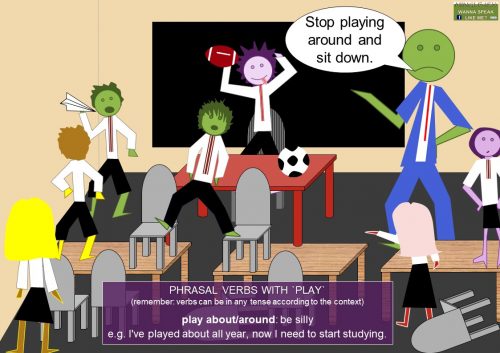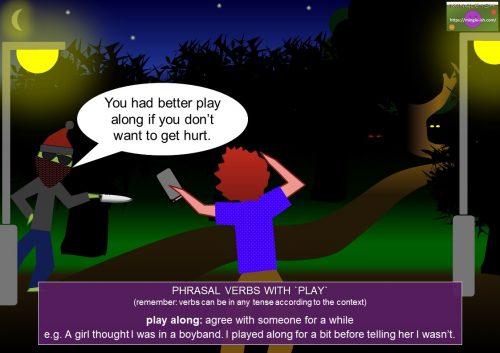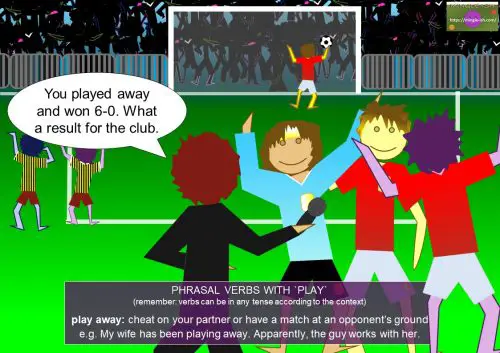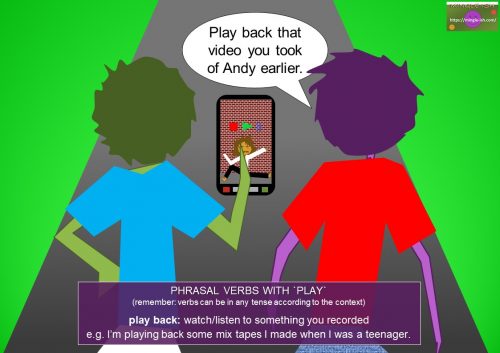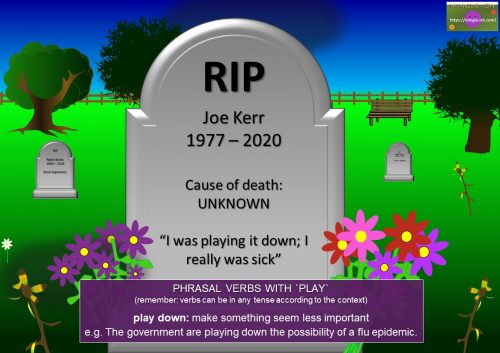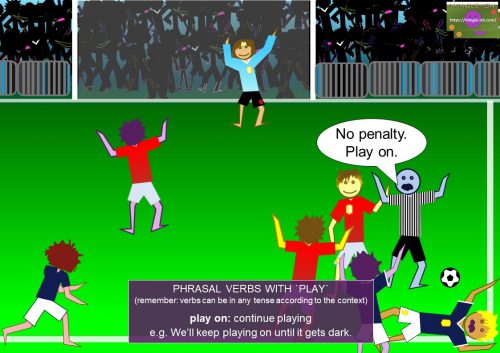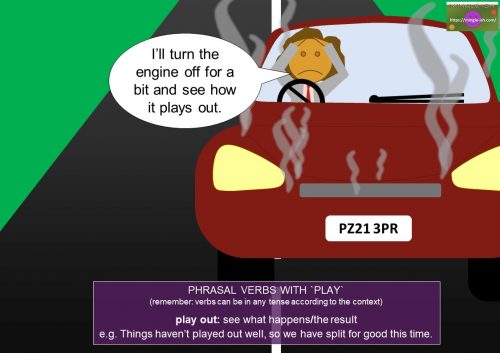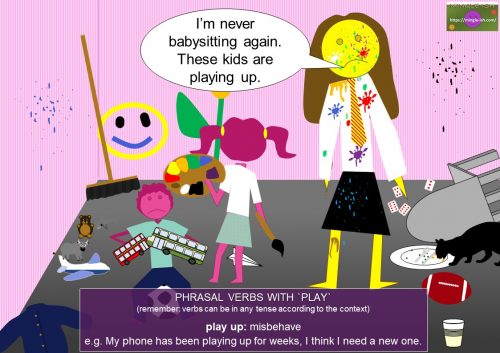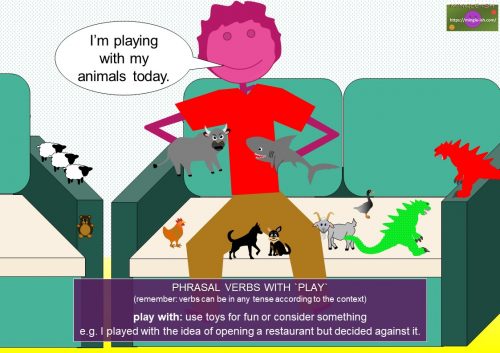The word ‘play‘ can mean many different things. As a verb, the meaning is to do a sport or activity for fun.
For example:
- I love playing badminton. (do a sport)
- Libby is playing with her dolly. (do an activity)
Play is a regular verb. The past tense and past participle is played.
phrasal verbs with play
Phrasal verbs with ‘play’ include:
- play about/around
meaning – be silly
example – I’ve played about all year, now I need to start studying. - play along
meaning – agree with someone for a while
example – A girl thought I was in a boyband. I played along for a bit before telling her I wasn’t. - play away
meaning – cheat on your partner or have a match at an opponent’s ground
example – My wife has been playing away. Apparently the guy works with her. - play back
meaning – watch/listen to something you recorded
example – I’m playing back some mix tapes I made when I was a teenager. - play down
meaning – make something seem less important
example – The government are playing down the possibility of a flu epidemic. - play on
meaning – continue playing
example – We’ll keep playing on until it gets dark. - play out
meaning – see what happens/the result
example – Things haven’t played out well, so we have split for good this time. - play up
meaning – misbehave
example – My phone has been playing up for weeks, I think I need a new one. - play with
meaning – use toys for fun or consider something
example – I played with the idea of opening a restaurant but decided against it.
picture examples
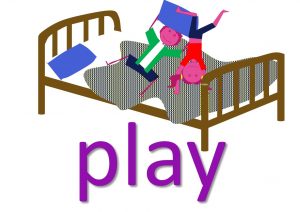
Let’s learn the meaning of the phrasal verbs that contain the verb ‘play’ in more detail and see some examples in use.
Did you know that many idiomatic expressions (idioms) in English also contain a lot of verbs? Just like phrasal verbs, idioms are a major part of the English language (slang in particular). They are used constantly amongst native English speakers and are handy to know and understand.
Now you’ve learnt all the phrasal verbs with play, how about learning the idioms with play too?
